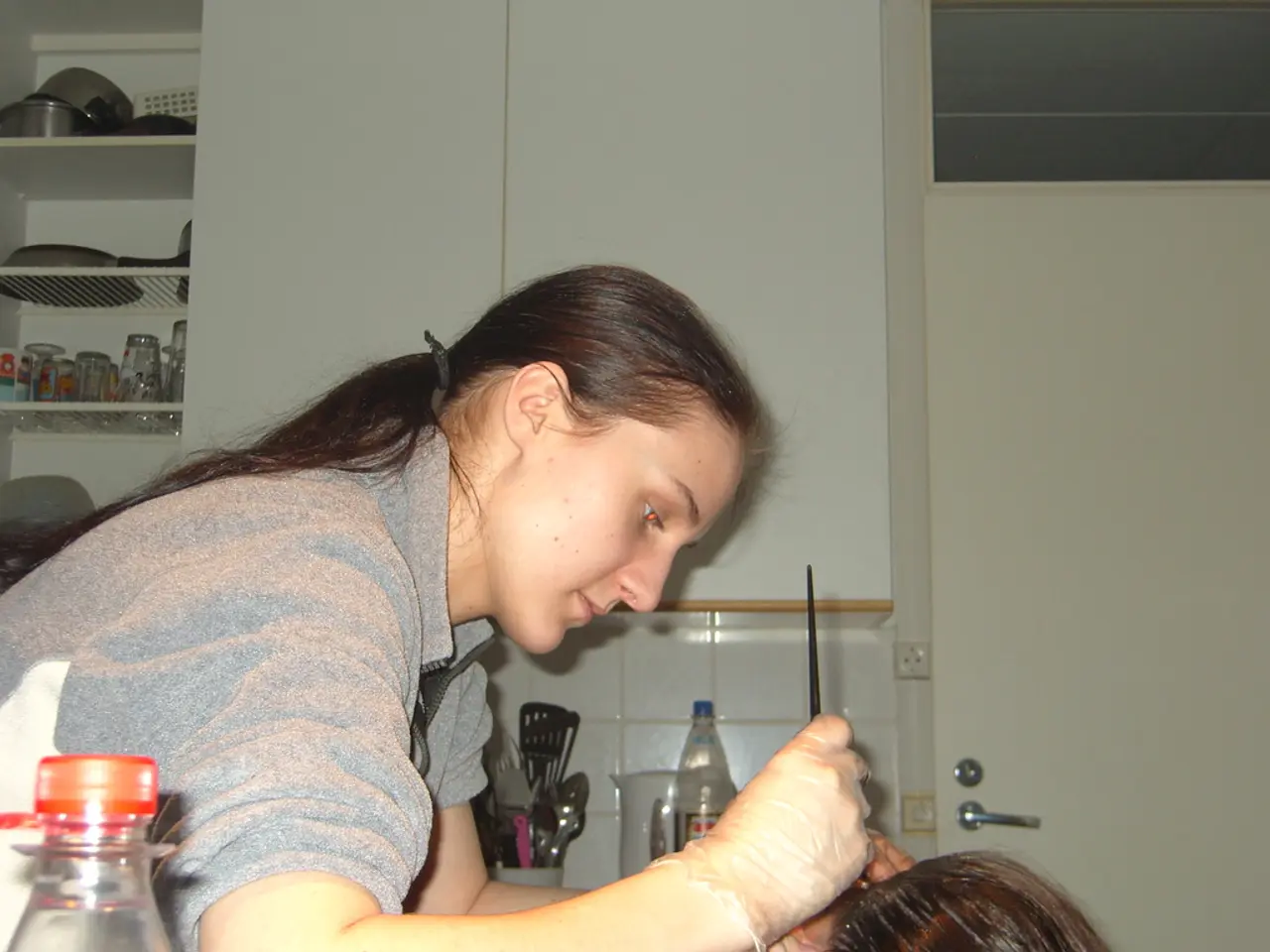Delving into the core of your hair troubles
=====================================================================================
A good hair care routine isn't just about shampooing and conditioning; it involves caring for the scalp as well. An effective scalp care routine varies depending on scalp type but generally involves cleansing, exfoliating, nourishing, and protecting to maintain hair health and prevent issues like dandruff, acne, and irritation.
General Principles for All Scalp Types
Regular cleansing with a pH-balanced, sulfate-free shampoo is essential to remove dirt and excess oil without stripping natural oils. Scalp exfoliation once a week helps remove dead skin cells, product buildup, and clogged pores. Scalp massage daily increases blood circulation and stimulates hair follicles, while a balanced diet and hydration support scalp and hair health from within.
Oily and Product-Buildup-Prone Scalp
For those with an oily scalp, clarifying shampoos or exfoliating scalp scrubs should be used weekly to reduce excess oil and buildup from styling products. Choosing shampoos formulated specifically for oily scalps can balance oil production, while ingredients like niacinamide can help regulate oil and reduce inflammation.
Dry or Sensitive Scalp
For dry or sensitive scalps, harsh sulfates should be avoided in favour of moisturizing, gentle shampoos and scalp treatments containing hyaluronic acid for hydration. Soothing scalp serums or treatments with peptides and probiotics can support the scalp's microbiome and barrier function. Excessive exfoliation or chemical treatments should be avoided to prevent irritation.
Scalp with Dandruff or Seborrheic Dermatitis
For those suffering from dandruff or seborrheic dermatitis, anti-dandruff shampoos containing ketoconazole, selenium sulfide, or zinc pyrithione are recommended. For persistent scalp flaking and itching, dermatologists may prescribe topical corticosteroids, antifungals, or other medicated treatments. Maintaining scalp hygiene and considering periodic exfoliation can help, but avoiding overuse is crucial to prevent irritation.
Scalp Acne or Irritation
Gently exfoliating the scalp can prevent pore clogging, while using calming, non-comedogenic scalp products can help soothe irritated skin. If irritation persists, consulting a dermatologist may be necessary, as medicated topical treatments may be required.
Additional Tips
Protecting the scalp and hair from heat damage by using heat protectant products before styling tools, regular trims every 6-8 weeks, and professional scalp treatments can all contribute to maintaining scalp health.
In summary, matching scalp care products and routines to your specific scalp type and concerns—such as dryness, oiliness, dandruff, or sensitivity—while adopting regular exfoliation, cleansing, nourishment, and protection steps helps maintain scalp and hair health effectively. Neglecting the scalp can lead to recurring skin irritation and acne, so it's important to prioritize its care.
[1] American Academy of Dermatology. (2021). Scalp Care 101: Tips for a Healthy Scalp. [online] Available at: https://www.aad.org/public/diseases/hair-scalp/scalp-care-101
[2] Healthline. (2020). Scalp Care: How to Keep Your Scalp Healthy. [online] Available at: https://www.healthline.com/health/scalp-care
[3] Byrdie. (2021). The Ultimate Guide to Scalp Care. [online] Available at: https://www.byrdie.com/scalp-care-guide-4467555
[4] Allure. (2021). The Best Shampoos for Dry Scalp. [online] Available at: https://www.allure.com/gallery/best-shampoos-for-dry-scalp
[5] Byrdie. (2021). The Best Scalp Scrubs for Every Hair Type. [online] Available at: https://www.byrdie.com/best-scalp-scrubs-4475835
Embracing a well-rounded skin-care routine for the scalp, as part of overall health-and-wellness, can substantially aid in maintaining a healthy scalp and promoting hair growth. This routine, as outlined in various sources like [1], [2], [3], [4], and [5], typically includes regular cleansing, gentle exfoliation, nourishment, and protection from environmental factors. Consequently, incorporating science-backed scalp-care products into one's regimen can help in preventing issues such as dandruff, acne, and scalp irritation, thereby contributing to improved skin health on the scalp.




